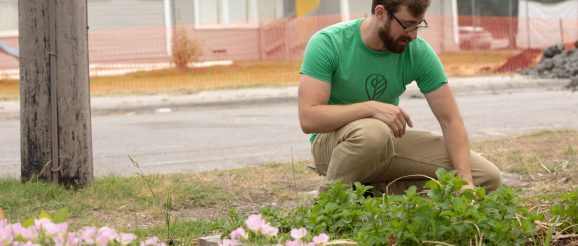Food experts weigh in on city’s history of culinary innovation

Food experts weigh in on city’s history of culinary innovation 3 min read Editor’s note: The San Antonio Report is pleased to feature the weekly bigcitysmalltown podcast hosted by Robert Rivard, co-founder of the Report. We’ll be publishing a brief synopsis of the podcast each Tuesday. When it comes to creating new cuisines or implementing food security solutions for its citizens, San Antonio has historically been a leading city of culinary innovation — a trend local food experts hope will continue as the city booms. In this week’s episode of the “bigcitysmalltown” podcast hosted by Bob Rivard, Mitch Hagney, the San Antonio Food Bank’s director of food sustainability, and Chef Elizabeth Johnson, founder and owner of Pharm Table, chew over San Antonio’s flavorful history while considering what could lie ahead for the city’s unique cuisine. Since taking on his role at the food bank in July, Hagney, who’s also the founder and CEO of LocalSprout and a board member of the Food Policy Council of San Antonio, has been working to help the non-profit integrate innovative solutions into its workflow. The food bank has recently built a facility that allows for the processing of wild game to be integrated into their distributions, Hagney noted, and already has large-scale farming operations on site to be able to provide produce to its clients. “Our food bank is as good a food bank as can exist, but when we’re thinking about improving the food system, the food bank is responding to emergency food access issues,” he said. “We need to build a resilient system. That hopefully means that we’re shortening the line before people end up going to the food bank as well.” Hagney has been a leader in working with the city and county to implement urban food forests — orchards of fruit-bearing trees on public land — around San Antonio. Over the past year and a half, he and the Food Policy Council have been working with a group out of Stanford called the Natural Capital Project to study what would happen to the city if a huge amount of publicly owned land transitioned to agricultural land. “On May 25, we’ll be presenting [that study] to the [City Council’s] community health and equity subcommittee,” he said. “Our intent is to get food forests built into the next city budget, and our hope is that some of those recurring funds that have been carved off of CPS [Energy’s] revenues will facilitate that process as well.” Hagney isn’t San Antonio’s only culinary creator looking at a better, more sustainable food future for San Antonio. As a longtime chef and food scientist, Johnson has been able to study the city’s Latin-inspired cuisine as well as its long history of food innovation. That history hasn’t always been pretty, she noted. She pointed to San Antonio’s history as the birthplace of canned chili, Frito-Lay, and modern processed American cheese as examples. “We have industrialized our food systems and our food in general,” she said, “and what we’re seeing now is just crazy amounts of cancer, diabetes, heart disease — basically, all these epidemics that at the end of the day are caused by either food, or foreign elements that we’re introducing to our bodies in the form of preservatives, or in the form of toxins.” The route back to sustainability also is in eating more local and natural food items, Johnson said, adding that she acts as a “hunter-gatherer” for her restaurant Pharm Table, a self-titled apothecary kitchen located in Southtown. “I really like introducing our customers and our team to things that they had no idea that they could even eat like the mesquite bean, or you know, a flower that was made from the mesquite bean,” Johnson said. “I think everybody knows you can eat nopal , but maybe you know we can present it in a new exciting way.” Listen to the full episode here. link
